
Apollo Global’s $5 Billion Investment in Intel—A Game-Changer for the Chip Industry
Contents
- 1 Intel share price
- 1.1 Apollo Global’s $5 Billion Investment in Intel—A Game-Changer for the Chip Industry
- 1.1.1 Apollo Global’s $5 Billion Proposal: A Lifeline for Intel?
- 1.1.2 Intel’s Downward Slide: Can Apollo Turn Things Around?
- 1.1.3 Intel’s $11 Billion Joint Venture in Ireland: A Sign of Recovery?
- 1.1.4 Could Qualcomm Swoop In with a Bigger Deal?
- 1.1.5 What’s Next for Intel and Apollo?
- 1.1.6 Conclusion:
- 1.1.7 FAQs:
- 1.1.7.1 1.Who owns Intel?
- 1.1.7.2 2.What is Intel full form?
- 1.1.7.3 3.Is the deal between Apollo and Intel finalized?
- 1.1.7.4 4.What is Apollo’s previous involvement with Intel?
- 1.1.7.5 5.Could Qualcomm acquire Intel?
- 1.1.7.6 6.What would Apollo’s investment mean for Intel?
- 1.1.7.7 7.What challenges is Intel facing in the chip market?
- 1.1.7.8 8.How does Apollo’s investment align with Intel’s broader strategy?
- 1.1.7.9 9.What are the potential risks of Apollo’s investment?
- 1.1.7.10 10.What is the current state of the semiconductor industry?
- 1.2 Intel share price
- 1.3 Adani Total Gas Secures $375 Million Funding: Shares Surge 8% Amid Major Expansion Plans
- 1.1 Apollo Global’s $5 Billion Investment in Intel—A Game-Changer for the Chip Industry
Apollo Global’s $5 Billion Investment in Intel—A Game-Changer for the Chip Industry
Big money is flowing into the chip industry, and Intel, once the king of chipmakers, is now at the center of a potential game-changing investment. Apollo Global Management, a U.S.-based asset management giant, is reportedly ready to inject up to $5 billion into Intel. But what does this investment mean for the struggling chipmaker, and can it spark a revival in Intel’s fortunes? Here’s a deep dive into what this massive deal could mean for the future of Intel and the semiconductor industry.
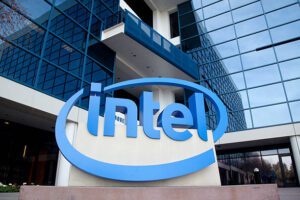

Apollo Global’s $5 Billion Proposal: A Lifeline for Intel?
Apollo Global Management, one of the biggest asset management firms in the U.S., has reportedly offered to invest as much as $5 billion in Intel, according to Bloomberg. This equity-like investment could be a crucial lifeline for Intel, whose shares have plummeted by nearly 60% since the start of the year.
Intel, once the most valuable chipmaker in the world, is now facing a significant downturn, losing ground to competitors like Qualcomm, AMD, and Nvidia. Apollo’s proposed investment comes at a critical moment, as the company looks for ways to regain its foothold in the competitive semiconductor market.
Intel’s Downward Slide: Can Apollo Turn Things Around?
The semiconductor giant has been struggling, with its stock value taking a significant hit. Intel’s once-dominant position in the chip market has been eroded by rising competitors and technological shifts. However, Apollo Global’s proposal could be the key to reversing Intel’s fortunes.
According to sources close to the matter, Intel executives have been evaluating Apollo’s offer in recent days, but talks are still in the early stages. There’s no guarantee that the deal will go through, and the size of the investment could change. But if it does, Apollo’s billions could provide Intel with the financial flexibility to focus on crucial areas like chip development and innovation.
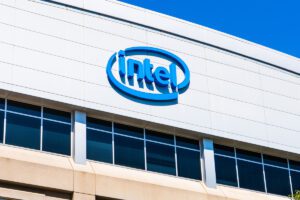

Intel’s $11 Billion Joint Venture in Ireland: A Sign of Recovery?
Apollo’s potential $5 billion investment isn’t its first major deal with Intel this year. Earlier, the asset management firm agreed to acquire a 49% equity stake in a joint venture related to Intel’s new manufacturing facility in Ireland, a deal valued at $11 billion. This joint venture is a strategic move for both companies, as Intel continues to expand its global manufacturing capabilities.
The Ireland deal, along with the potential new investment, signals that Apollo sees long-term value in Intel’s business. With Apollo backing Intel, the company could bolster its production capacities and position itself to compete more aggressively in the global chip market.
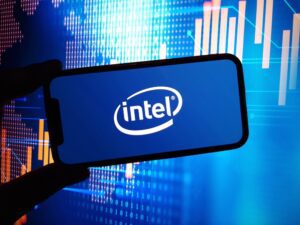

Could Qualcomm Swoop In with a Bigger Deal?
The potential investment from Apollo comes amidst swirling rumors that Qualcomm, another semiconductor giant, is eyeing Intel for a potential acquisition. Qualcomm CEO Cristiano Amon is reportedly personally involved in early-stage talks with Intel. If successful, such a deal could shake up the entire chip industry, but it faces numerous regulatory and strategic challenges.
Interestingly, Qualcomm has previously explored acquiring parts of Intel’s chip design business, and a full acquisition would be a monumental shift for both companies. However, these talks are still in the preliminary phase, and Intel’s board is weighing all options, including Apollo’s proposal.
What’s Next for Intel and Apollo?
While Apollo’s $5 billion proposal could be a turning point for Intel, the future remains uncertain. The deal is still in its infancy, and negotiations could break down. However, if it goes through, Apollo’s investment could provide Intel with the capital it desperately needs to focus on growth, innovation, and reclaiming its place at the top of the chipmaking world.
The semiconductor industry is witnessing unprecedented demand, with chips becoming integral to everything from smartphones to electric vehicles. If Intel can harness Apollo’s investment, it could spark a turnaround, pushing the company back into the race against top competitors like Qualcomm and AMD.

Conclusion:
Apollo Global’s proposed $5 billion investment could mark the beginning of Intel’s resurgence in the highly competitive semiconductor industry. As the company faces mounting challenges, including stiff competition and falling stock prices, this infusion of capital could provide Intel with the resources needed to innovate, expand, and regain its lost glory.
But Intel’s future is far from certain. With potential interest from Qualcomm and the evolving chip landscape, the company is at a crossroads. Will Apollo’s investment be the spark Intel needs to power back to the top, or will it be too little, too late? Only time will tell.
FAQs:
1.Who owns Intel?
A. The ownership structure of Intel (INTC) stock is a mix of institutional, retail and individual investors. Approximately 59.70% of the company’s stock is owned by Institutional Investors, 0.68% is owned by Insiders and 39.61% is owned by Public Companies and Individual Investors.
2.What is Intel full form?
A. Intel is an abbreviation for Integrated Electronics. The American tech company and multinational corporation, Intel Corporation, has its headquarter in Santa Clara, Silicon Valley, California.
3.Is the deal between Apollo and Intel finalized?
A. No, the deal is still in its early stages, and the terms of the investment could change. There’s also a possibility the talks could fall through.
4.What is Apollo’s previous involvement with Intel?
A. Earlier this year, Apollo acquired a 49% equity interest in a joint venture related to Intel’s new manufacturing facility in Ireland, valued at $11 billion.
5.Could Qualcomm acquire Intel?
A. Qualcomm has reportedly approached Intel for a potential acquisition, but these talks are still in the early stages and face several hurdles.
6.What would Apollo’s investment mean for Intel?
A. Apollo’s investment could provide Intel with the financial flexibility to invest in innovation and chip development, potentially helping the company regain market share.
7.What challenges is Intel facing in the chip market?
A. Intel is facing tough competition from rivals like AMD, Nvidia, and Qualcomm, which have outpaced Intel in innovation and market growth.
8.How does Apollo’s investment align with Intel’s broader strategy?
A. Apollo’s investment, along with the Ireland joint venture, shows that both companies are focusing on expanding Intel’s global manufacturing footprint.
9.What are the potential risks of Apollo’s investment?
A. The deal could still fall through, and Intel’s challenges may prove too significant for Apollo’s investment to make a meaningful impact.
10.What is the current state of the semiconductor industry?
A. The semiconductor industry is experiencing high demand, driven by advancements in technology, with chips being used in everything from smartphones to electric vehicles.







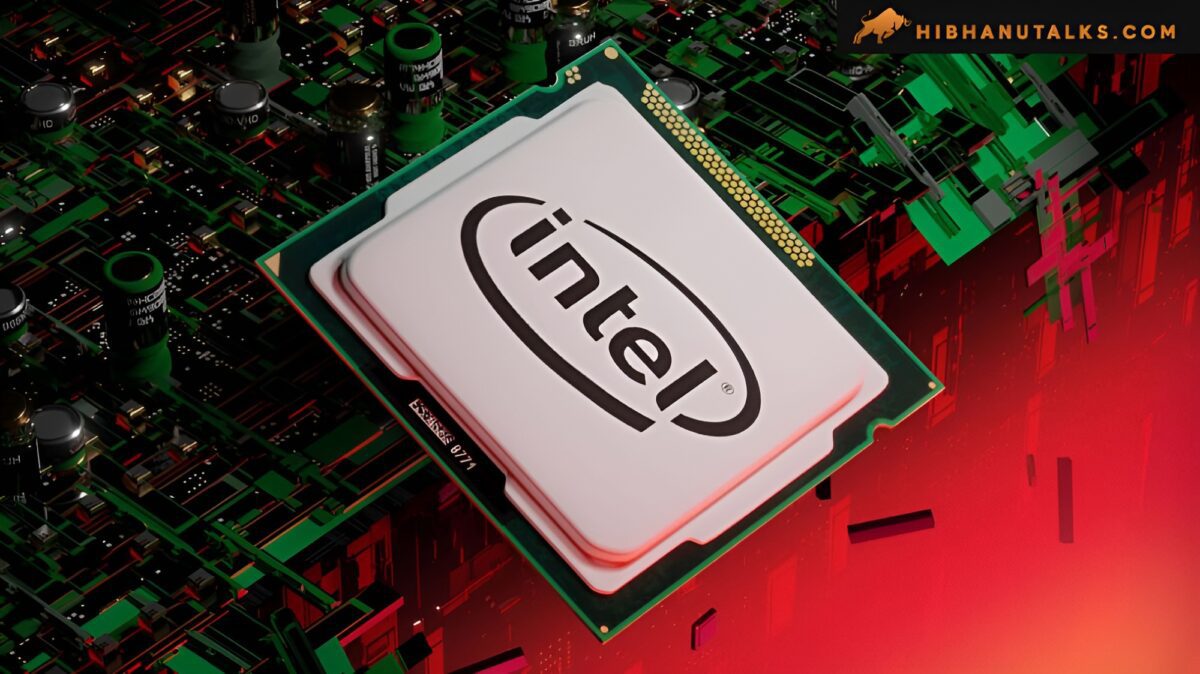




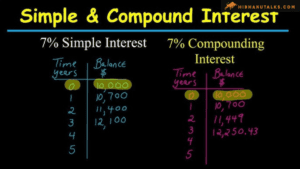








2 comments